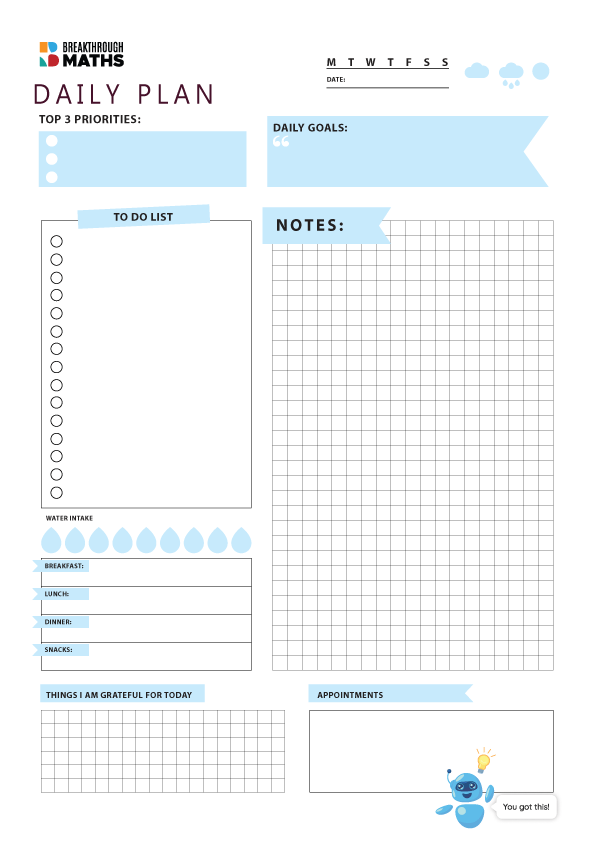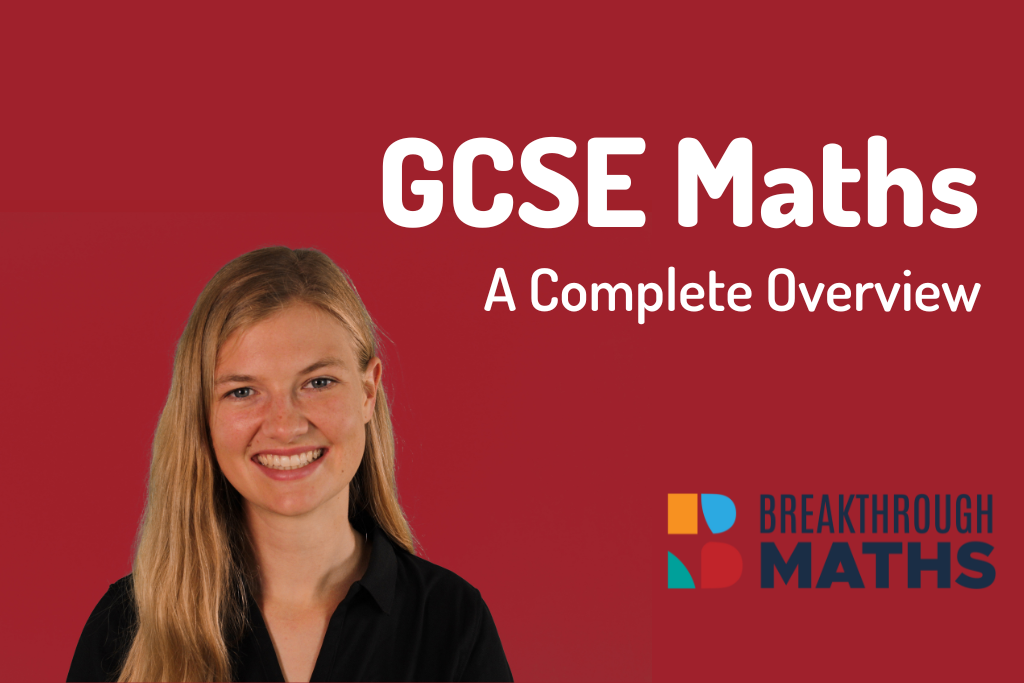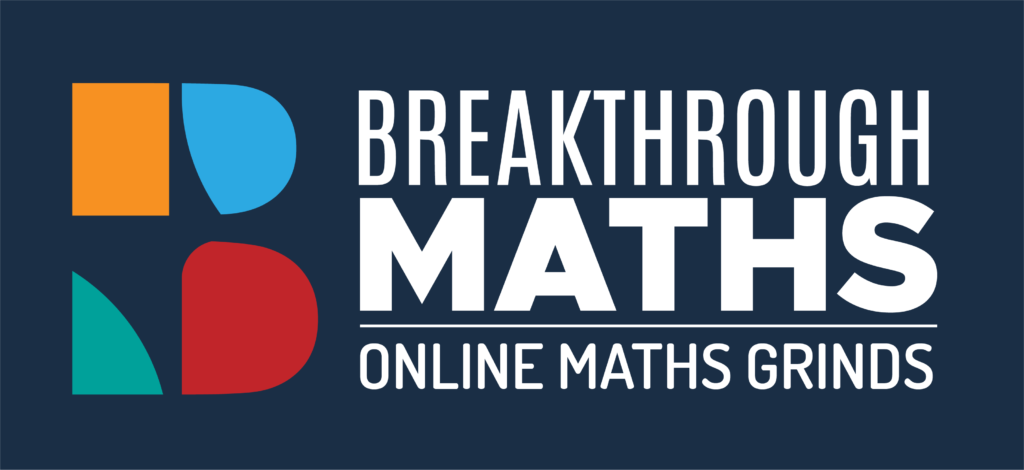Table of Contents
Introduction To GCSE Maths
Are you wondering what GCSE Maths is all about? Look no further!
In this blog post, we’ll give you a brief introduction to the GCSE Maths course, including what topics are covered in the syllabus, who takes the exam, and when it is typically taken. We’ll also share some tips and strategies for studying and preparing for the exam, so you can feel confident and succeed on exam day!
GCSE Maths is a qualification that is taken by students in the UK who are aged between 14 and 16. It’s part of the General Certificate of Secondary Education (GCSE) exams, which are used in England, Wales, and Northern Ireland. The GCSE Maths exam tests your knowledge and understanding of a range of mathematical concepts, including algebra, geometry, trigonometry, statistics, and probability.
Most students sit the exam at the end of Year 11, which is the second to last year of secondary school in the UK. It’s usually taken May or June, and is graded on a scale from 9 to 1, with 9 being the highest grade. To pass the GCSE Maths exam, you need to achieve a grade of at least 4.
The GCSE Maths exam is administered by the three main examination boards in the UK: AQA, Edexcel, and OCR. These boards set the syllabus and examination papers, and are also responsible for marking and grading the exams. You can choose which examination board you want to take your GCSE Maths exam with, and you can also take the exam at a school or college of your choice.
Maths is one of the core subjects that students must take and is often required for many jobs and further education courses. It is therefore important to get a good grade in maths, even if it is not your favourite subject.
Overview
The GCSE Maths course is a comprehensive program that covers a wide range of mathematical concepts, including algebra, geometry, trigonometry, and calculus. Students who take this course learn how to apply mathematical principles to real-world problems and develop their critical thinking and problem-solving skills. The course is typically completed over two years of study.
One of the key concepts covered in the GCSE Maths course is algebra. This includes topics such as solving equations, graphing functions, and working with algebraic expressions. Students also learn about geometry, which involves working with shapes and spatial relationships. This includes calculating the area and perimeter of different shapes, as well as understanding concepts such as congruence and similarity.
In addition to algebra and geometry, the GCSE Maths course also covers trigonometry and calculus. Trigonometry consists of working with triangles and circular functions, and is often used in fields such as engineering and physics. Calculus, on the other hand, is a branch of mathematics that deals with rates of change and the lengths, areas, and volumes of objects. This unlocks the secrets of the world around us, from the flight of a baseball to the spread of disease.
The GCSE Maths exam is split into two papers, Paper 1 and Paper 2. Paper 1 focuses on Number and Algebra, while Paper 2 covers Geometry and Measure, Probability and Statistics. Students are given 1 hour and 45 minutes to complete each paper.
The papers are typically structured as a series of multiple choice and short answer questions, with some longer, more in-depth questions at the end. The exam is designed to assess students’ understanding of the key concepts covered in the course, as well as their ability to apply those concepts to real-world situations.
Resources
To prepare for the GCSE Maths exam, students often use a combination of textbook study and practice exams. Some popular textbook choices for the GCSE Maths course include “GCSE Maths Edexcel Complete Revision & Practice” by CGP Books and “Revise AQA GCSE Maths” by Pearson. Practice exams can also be a useful tool for students to assess their understanding of the material and identify any areas where they need to focus their studies.
Using past papers when studying for the GCSE Maths exam is important because it allows students to get a sense of what the exam will be like. Past papers provide students with an opportunity to practice solving problems under exam conditions, which can help them develop their problem-solving skills and build confidence for the real exam.
Students can access GCSE Maths past papers in a few different ways. One option is to contact their school or college and ask if they have any past papers that the student can use for studying. Many schools and colleges keep a collection of past papers that students can use for this purpose.
Another option is to visit the website of the exam board that administers the GCSE Maths exam. For example, if the student is taking the GCSE Maths exam through the AQA exam board, they can visit the AQA website and look for a section on past papers. The exam board’s website should have a collection of past papers that students can download and use for studying.
Finally, students can also purchase books of past papers from bookstores or online retailers. These books often include a collection of past papers with solutions, which can be a useful study aid for students preparing for the GCSE Maths exam.
To save you the hassle, we’ve collected all the GCSE Maths papers from different exam boards and linked them below for you. Just choose your exam board below and click the corresponding link.
- AQA: Click here for past papers
- Edexcel: Click here for past papers
- OCR: Click here for past papers
Our online maths school
Breakthrough Maths is an online maths school that offers a fresh and engaging way to study mathematics. Unlike traditional books and past papers, we use interactive video lessons and personalised learning tools to help students understand and retain complex mathematical concepts.
We provide specialised worksheets, notes, and other learning resources for GCSE Maths students to help support their studies. Our weekly tuition sessions allow students to develop core problem-solving skills needed for the exam – skills that books and past papers cannot teach.
The online platform also allows students to easily track their progress, receive guidance and support from experienced teachers, and connect with their peers for collaboration and discussion. With its innovative approach and comprehensive resources, Breakthrough Maths is a valuable resource for anyone looking to improve their maths skills and achieve success in their studies.
Here’s why we’re different to other maths tuition providers:
Small class sizes
It’s impossible for students to get the individual help they need in classes of 20 or 30 students. Our classes run in small groups with no more than 6 students. This allows students to benefit from the group experience of learning and asking questions together, while still being able to engage and get the personalised support they need.
Online classes
We deliver all our classes online. After a long day at school, why would you want to drive to another lesson? We save you the time and stress of travelling. You can use this time to study, do sports, or just relax.
24/7 Maths Support
We have a dedicated system where students can get help with anything they’re struggling with in maths. Just send us the issue you’re facing, and we’ll get back to you with a personalised video solution. It’s like having a maths genius on speed dial for any problem you’re having. We call it: SupportSapp.
If you’d like to learn more, check out our website (breakthroughmaths.co.uk). Book a free trial to get started and see the magic of our online school for yourself.
Syllabus
The GCSE Maths syllabus is divided into several key sections, including:
- Number: This section covers topics such as fractions, decimals, percentages, and ratios. Students learn how to manipulate and calculate with these numbers, as well as how to solve problems involving them.
- Algebra: In this section, students learn how to work with algebraic expressions, equations, and graphs. They learn how to solve equations, manipulate algebraic expressions, and graph functions.
- Geometry and Measures: This section covers topics such as shapes, angles, lengths, and areas. Students learn how to calculate the perimeter and area of different shapes, as well as how to work with angles and lengths.
- Statistics and Probability: In this section, students learn how to collect, analyse, and interpret data. They learn how to use statistical techniques such as averages and probability to make predictions and draw conclusions from data.
- Calculus: This section covers the basics of calculus, including topics such as rates of change, limits, and the lengths, areas, and volumes of objects.
While all these topics are equally important for the final exam, students should focus their efforts on developing a solid understanding of algebra before moving on to other topics. Algebra is likely to be one of the most important topics for the GCSE Maths exam, as it is a fundamental mathematical concept that is used in many other areas of mathematics.
Algebra is used in nearly every section of the GCSE Maths syllabus, from number and geometry to statistics and calculus. As such, students who have a strong understanding of algebra are likely to perform well on the exam.
Additionally, the ability to solve equations and manipulate algebraic expressions is an important problem-solving skill that is likely to be emphasized on the exam. The GCSE Maths syllabus is designed to provide students with a strong foundation in mathematical concepts and principles, as well as the skills to apply those concepts to real-world problems
Step-By-Step Guide
The GCSE Maths exam can be challenging, but with the right approach, you can succeed. Here is a 10-step guide to help you prepare for the exam and achieve success:
- Goal setting: Start by setting a clear goal for yourself, such as achieving a certain grade in your GCSE Maths exam. This will help motivate you and give you a target to work towards.
- Scheduling: Create a study schedule and stick to it. Make sure to set aside a regular time each day or week to study and practice Maths. This helps to balance the workload of all your subjects.
- Fundamentals: Work on mastering the basics. Make sure you understand the fundamental concepts and principles of Maths, such as algebra, geometry, and arithmetic, before moving on to more advanced topics.
- Practice, practice, practice: The more you practice, the better you will become at solving Maths problems. Try to do as many practice problems as you can, and work on improving your speed and accuracy.
- Ask for help: Seek help when you need it. If you’re struggling with a particular topic or concept, don’t be afraid to ask for help. You can ask your teacher, a tutor, or a classmate for assistance.
- Stay organised: Keep all of your notes and study materials in one place, and make sure to label and organize them in a way that makes them easy to find and use.
- Take regular breaks: Studying for long periods of time can be exhausting and counterproductive. Make sure to take regular breaks to recharge and refocus.
- Stay focused: Avoid distractions. It can be tempting to check your phone or browse the internet while studying, but this will only distract you from your studies and make it harder for you to learn.
- Revision: Review and revise regularly. Don’t just study the material once and then forget about it. Make sure to review and revise the material on a regular basis to keep it fresh in your mind and improve your understanding.
- Mindset: Stay positive and confident. Don’t let yourself get discouraged if you struggle with a concept or make a mistake. Keep a positive attitude and believe in yourself, and you will be more likely to succeed in your GCSE Maths exams.
At Breakthrough Maths, we offer 24/7 support to all our students through SupportSapp. This is your go-to resource for ANY maths question you have got – from school, past papers, or our custom worksheets. Just send us your issue, and we’ll get back to you with a personalised video solution.
Book a free trial to try it out for yourself. You’ll never get stuck on maths again.
The most important thing to do is plan out your study. This helps you make the most of your study time. You can ensure that you have enough time to cover all of the material you need to learn, and you can also identify any potential conflicts or gaps in your schedule so that you can adjust accordingly. You can stay organised and on track, which can help you reduce stress and improve your overall study efficiency.
To help you achieve this, Breakthrough Maths has created a custom study plan for GCSE Maths students. Use this template to prioritise your work each day and achieve your potential. Click the button below to download it for yourself.

Tips and Tricks
Active Recall
Active recall is the most effective method for long-term learning. It emphasises the idea that you need to test yourself repeatedly to learn information – you don’t learn by reading.
You can use this idea in your study by creating flashcards with questions to test yourself. Alternatively, when studying from notes, try looking away and seeing how much you remember. Forcing yourself to retrieve information helps you to remember it.
Blurting
Blurting is another method of using active recall to boost your study. After reading a chapter of a book or some other information, put your notes away so you cannot refer to them. Then, take out a blank sheet of paper and write down as much as you can remember from what you read. Once you’re done, open your book again and see what you missed. This is the information that you need to focus on.
Brainstorming
Brainstorming helps to develop your understanding of a topic by forcing you to make connections. Many students find it useful to convert all the information in their textbook into a brainstorm using colours and highlighters. This not only helps you to absorb the material, but it also acts as a perfect revision resource for the night before your exam.
The Feynman Technique
The Feynman technique states that the best way to build a strong understanding of a subject is to explain it to someone else in simple terms. You can use this to boost your memory for GCSE Maths. After learning a new topic, try explaining it to a friend or sibling. This will force you to explain your ideas in a simple manner, helping to develop your memory.
Spaced Repetition
Spaced repetition is a revision tool that helps you remember information for long periods of time. It works by considering the forgetting curve, which describes how your memory works. If you don’t study something, you will gradually begin to forget it. However, this can be avoided by regularly revising your material.

You can implement this idea in your own study by revising topics every few weeks. Using an app like Anki makes this easy to do, as it automatically tells you when to look back at previous topics.
Common Mistakes
It’s crucial to be familiar with the common mistakes that students make so that you can avoid them on exam day and maximise your performance. We’ll delve into the most frequent mistakes that students make in GCSE Maths and provide actionable tips on how to avoid them. This will save you valuable marks in your exam!
Algebra
One common mistake that students make when working with algebra is incorrectly substituting values into equations.
To avoid this mistake, make sure to carefully substitute the correct values into the correct locations in the equation. Always use brackets when substituting values and remember your order of operations.
Geometry
In geometry, a common mistake is mixing up the formulas for calculating the area and perimeter of a shape.
To avoid this mistake, make sure to carefully read the problem and identify which formula you need to use. Highlight whether the question requires you to calculate “area” or “perimeter” and look for the same word in the formula sheet.
This may sound basic, but it is also important to be comfortable with naming your shapes. What’s the difference between a trapezium, parallelogram, and rhombus? This is important to understand questions and to be able to use the correct formulae.
Trigonometry
A common mistake that students make is not properly converting between degrees and radians.
To avoid repeating this on exam day, make sure to use a calculator or a conversion table to accurately convert between the two units of measure. Or, just learn the following trick:
- To go from degrees to radians, multiply by π/180
- To go from radians to degrees, multiply by 180/π

Another core concept that we see students struggle with is the trigonometric functions: sin, cos, and tan. If this sounds like something that you could use some help with, check out a quick video by our lead tutor Luke below. In just two minutes, you’ll know everything about SOH-CAH-TOA!
Probability
When working with probability, a common mistake is not properly understanding the difference between the likelihood of an event occurring and the probability of an event occurring.
To avoid this mistake, make sure to carefully read the problem and identify the appropriate concept to use. Make sure you are comfortable with the difference between likelihoods and probabilities.
Statistics
In statistics, many students lose out on important marks because they do not the difference between a sample and a population.
To avoid this mistake, make sure to carefully read the problem and identify whether you are working with a sample or a population.
Remember: A population is the entire group that you want to draw conclusions about. A sample is the specific group that you will collect data from. The size of the sample is always less than the total size of the population.
Looking Forward
GCSE Maths is an essential subject that provides a strong foundation for many academic and professional pursuits. It is a requirement for many A-Level subjects, including physics, computer science, and engineering. Furthermore, a good grade in GCSE Maths is often necessary for admission to university programs in these fields, as well as many others.
GCSE Maths is an important skill for a wide range of careers, including finance, data analysis, and scientific research. Employers in these fields often look for applicants with a good understanding of Maths.
Studying GCSE Maths also helps develop critical problem-solving skills. In addition to providing a foundation for further study in subjects such as economics, statistics, and actuarial science, GCSE Maths can also improve logical thinking and decision-making abilities. These skills are valuable in a wide range of careers, from business to healthcare to education.
In short, GCSE Maths is a valuable subject that should be taken seriously. It opens doors to many opportunities and provides a strong foundation for success in all avenues of life.
Final advice
To all the students studying GCSE Maths, we want to wish you the best of luck on your exams! We know that this subject can be challenging, but we have confidence in your abilities. Remember to stay focused and dedicated, and don’t hesitate to ask for help if you need it. We believe in you and know that you will do well on your exams. Good luck!
If you liked this guide, you may also be interested in the following posts:
- A-Level Maths Decoded: The 7 Key Concepts You Need To Know
- Key Stage 3 Maths Simplified: Transform Your Child’s Grades And Confidence
If you’re looking to boost your confidence and results in maths, give our online maths school a try with a FREE trial grind. Visit our website at breakthroughmaths.co.uk to learn more.



